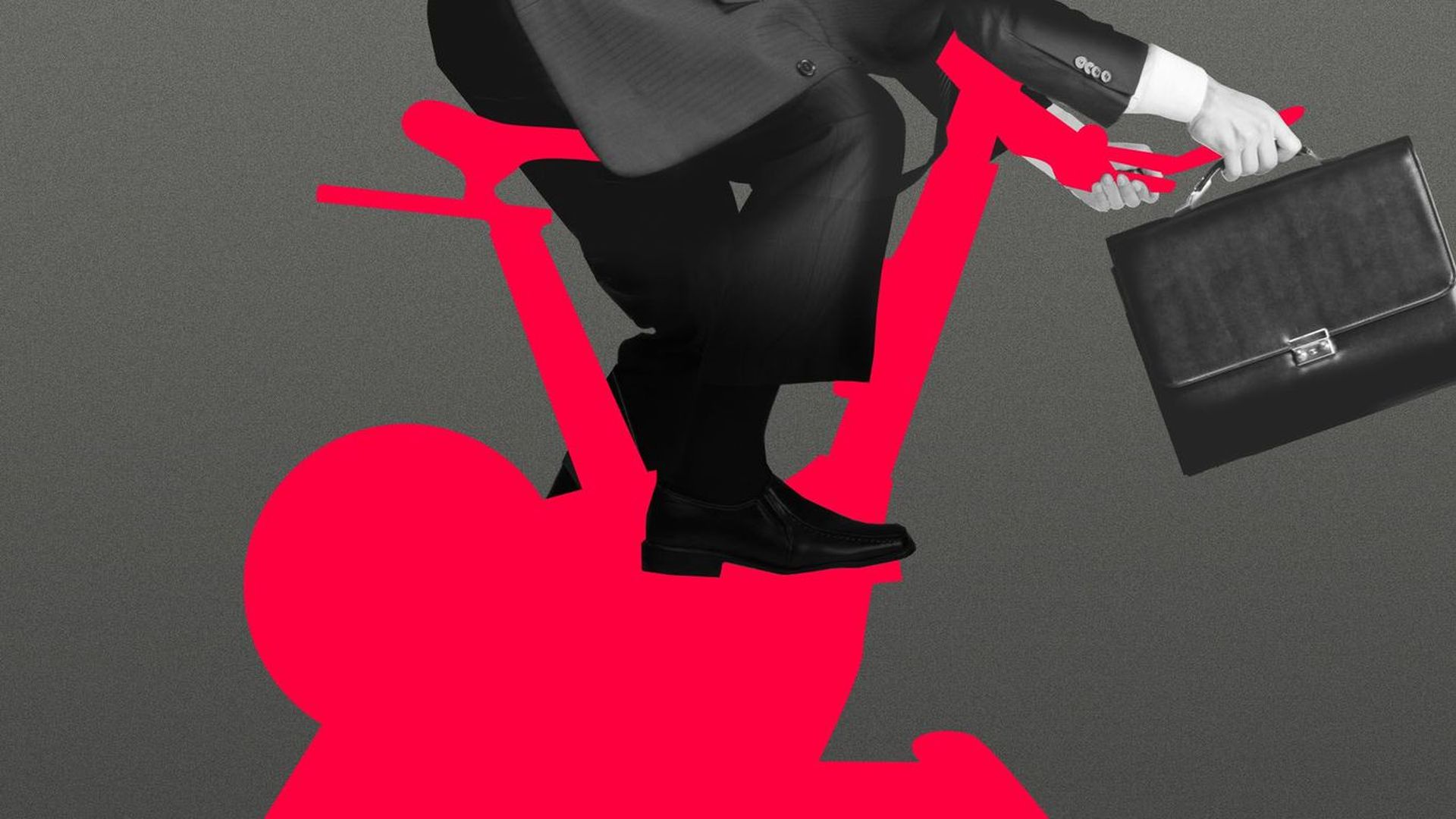Peloton CEO John Foley on post-IPO falling stock price
Add Axios as your preferred source to
see more of our stories on Google.

Illustration: Sarah Grillo/Axios
Peloton CEO John Foley told Axios on Thursday that he isn't too concerned about how the connected fitness company's share price has fallen sharply in its first day of post-IPO trading.
"I'm following it like everyone else, but trying not to take it too personally or getting too discouraged after a couple hours of sideways trading. Obviously, we'd rather have it going the other way, but I don't think it's a reflection on our fundamentals or the excitement of investors who came in. This is a long journey."
- Peloton raised nearly $1.2 billion in its IPO, pricing at the top of its $26–$29 per share range. That gave it an initial market cap of $8.1 billion and a fully diluted market value of $9.6 billion.
- Shares opened below the IPO price, and they have fallen steadily. As of this writing, they are down more than 11% to $25.58 per share.
Foley spoke with Axios several hours after the first trades, and he acknowledged that his company priced into an IPO market roiled by WeWork's troubles.
About the road-show reaction: "It was binary: People got it and loved it or they did not get it and were scratching their heads and asking super cynical questions about fitness being a fad. In the last couple meetings, I asked people to raise hands if they thought fitness was a fad. No one really did. That's because while there are faddish things in fitness, fitness itself isn't going away and we're going at core cardio, cycling, strength, etc."
Cheaper rivals: "I'm not worried about it. There will be a flight to quality ... and we have a lot of money on the balance sheet."
What if bike-buyers default on financing plans? "We don't hold the paper. Affirm takes all of the risk on financing, and they believe it's less than 1% default exposure. We get the money in advance and pay Affirm a fee — kind of a contra revenue concept. Ernst & Young encouraged us to think about it as a discount."
Margins: "We make reasonable money on the bike now. Say it used to cost us $1 to make, now we make it for less than 60 cents thanks to recognizing real scale on the supply chain. In fact, we make enough margin on the hardware between bikes and treads to pay all sales and marketing investment, dollar-for-dollar."
Then why unprofitable? "Our U.S. bike business is profitable. We're investing $100 million in 2 new studios and $100 million into a new headquarters in New York City. But we don't move into any of those for another 6–12 months, so we're double-burdened by real estate right now. We're also on investment mode on the tread, are hiring German instructors to launch in that country, and are investing in other growth vectors. Basically, we juiced our expense line but think it will pay dividends down the line."
